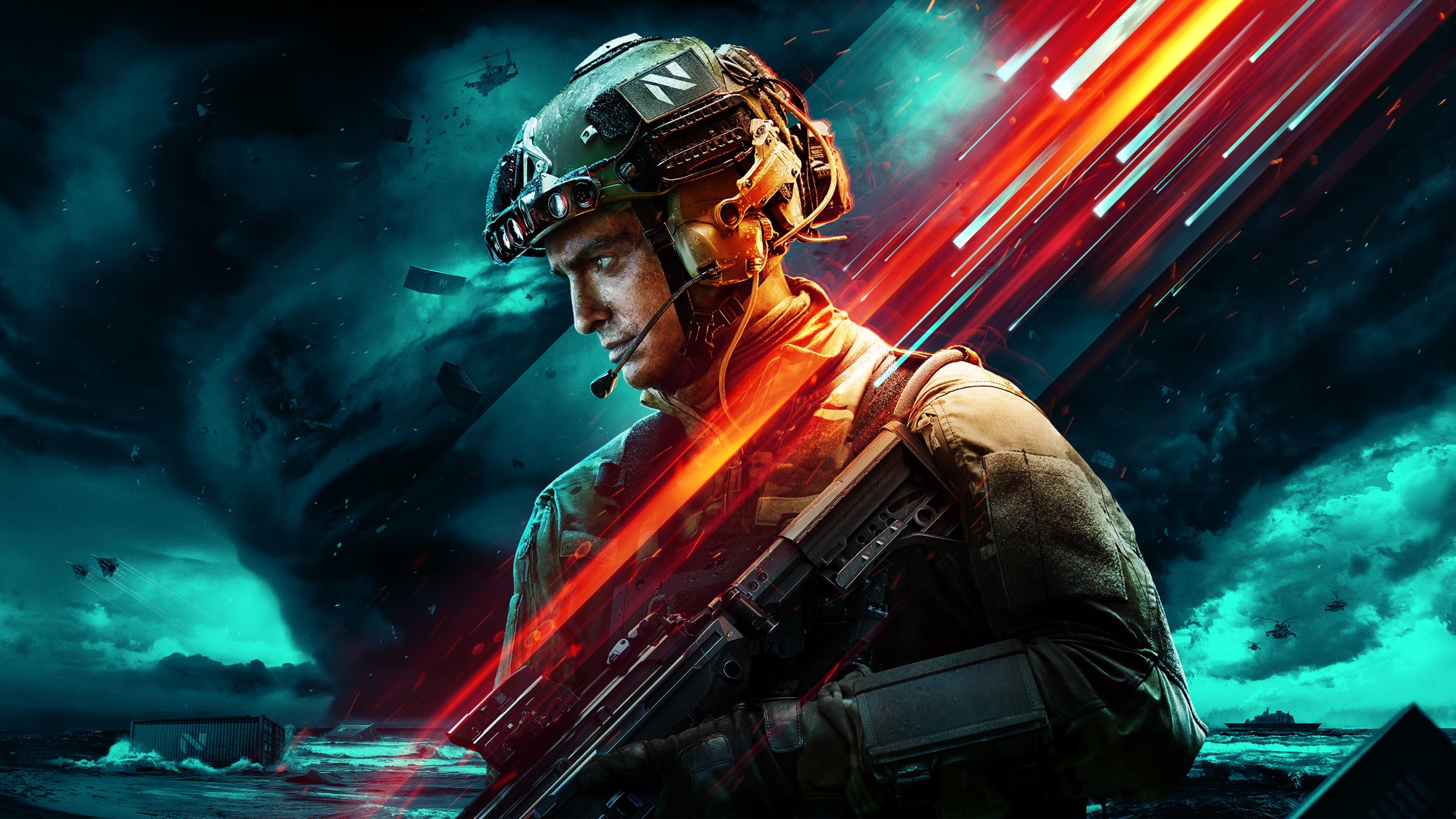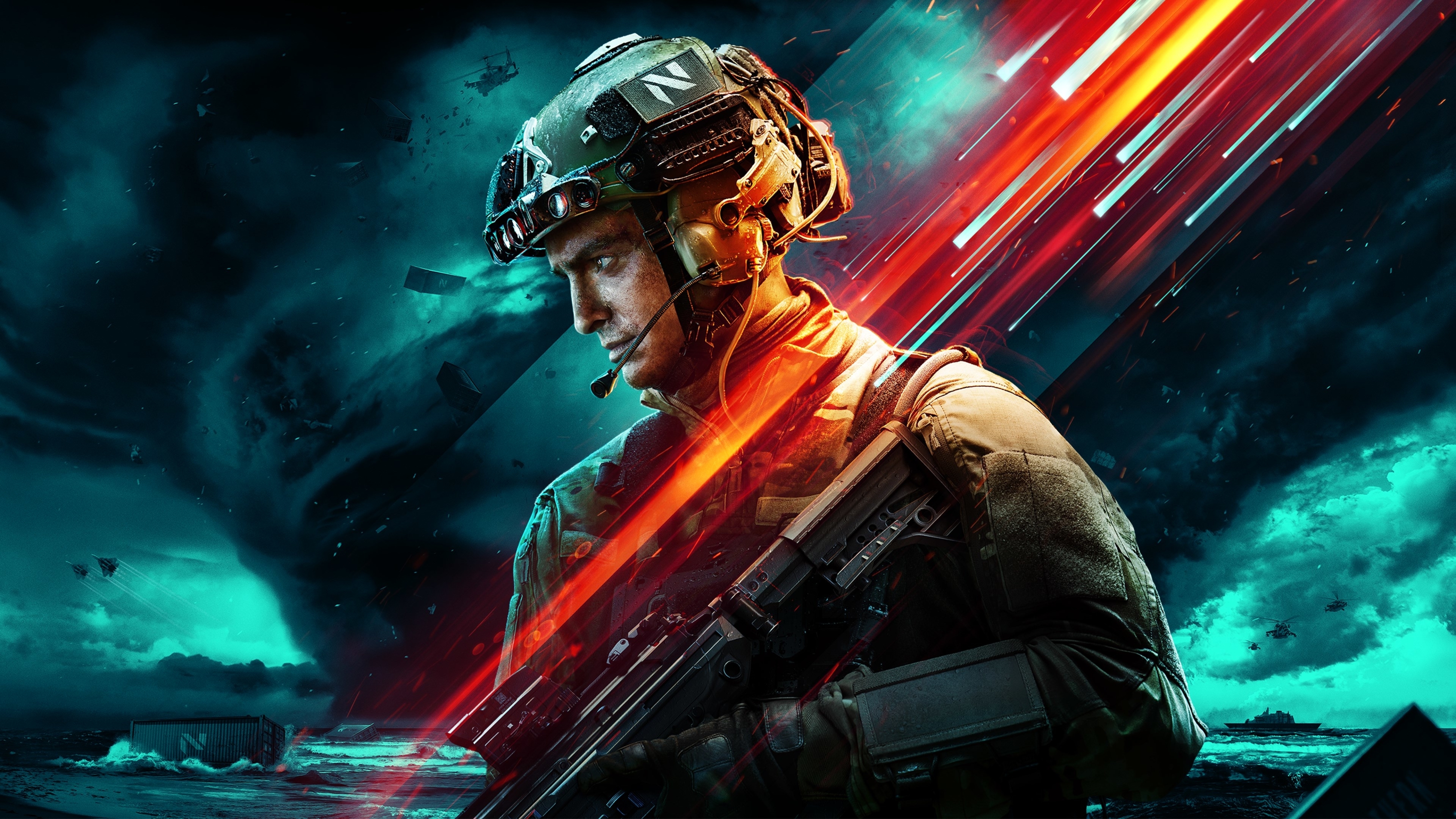Battlefield 2042 is the series' make-or-break moment for DICE and EA, and it's coming up against some pretty stiff competition. Can it deliver?

We shouldn't have to be having this conversation. Everything seemed in the bag, everything seemed to be out on the table, ready for a fantastic next course in the Battlefield saga's menu. This was supposed to be Electronic Arts' and DICE's redemption story, their love letter to the fans. After the disaster that was Battlefield V and Hardline, and the mixed reception of Battlefield 1, this was the moment we were waiting for. What happened?
That's the question which is so hard to answer about this whole thing. What did happen? Do you remember six months ago, when rumors started surfacing about Call of Duty: Vanguard? The consensus in the datamining community, all of those insiders, all of those leakers, was a general agreement that (then-named) Call of Duty 2021 didn't look very good. Reports were saying that Sledgehammer Games' next entry was going to be a mixed mess, with a troubled development. What's more, even if the game turned out to be alright... it was still "just another World War II game". Activision had to pull out all of the stops for this one, or it would fail to capture our attention.
The game is due out in less than a week now (from publication), and it's looking like the strongest Call of Duty game in years. People are maybe not as psyched as they were for Modern Warfare (2019), but they're far more excited than we could have ever expected. Call of Duty: Vanguard's redemption story is extraordinary (especially if they pull it off when the game launches on Friday), but what about Battlefield 2042? Well, this year's Battlefield is looking less like a redemption story than it is looking like the next try-hard bro-shooter that's destined to fall by the wayside. How did it come to this?
Then there's Halo Infinite, another redemption story (2021 is certainly the year of bro-shooter redemption stories). It's a redemption story because Halo 5: Guardians was a flop, and the only new mainline Halo game since Halo 4 2021. 343 Industries have now been at the helm for as long as Bungie was, and are only now releasing their third mainline Halo game. I enjoyed Halo 4, but I'm in the minority. I played about two hours of Halo 5. Bungie developed five mainline Halo games in this same space of time (if you include ODST), all of which were better than 343's efforts (not if you do include ODST).
343 Industries is, however, on course for a serious victory here. Their game will be out on Game Pass, it will have free-to-play Multiplayer, the first semi-open world Halo Campaign, and... Master Chief. Nothing draws the gamer-bros like the Chief himself, and let's be real, even Call of Duty couldn't bring that much hype. Still, Halo's hype isn't like it used to be, and after such a rough decade for the series, it's hard to imagine it coming out on top this year. That being said, I can easily see it beating Battlefield 2042. Why? Well, there are a couple of reasons.
Battlefield 2042's Beta was hardly a rip-roaring success. It wasn't a disaster by any means, but there was just something... off about it. Trolls will always be trolls, and those negative scoundrels who prowl the internet's Subreddits, Comment Sections, and Twitter Feeds, will always have something nasty to share. Battlefield 2042's Beta may have had a particularly high quantity of such bores, but they weren't the true problem. The problem came from the critics, who are possibly more divided on this than on any other Beta in recent history.
Divided is the operative word, as many are yielding this beta as a triumph of the genre, and many are yielding it as an absolute disaster. The first thing I personally would say about it is that it was "most definitely a beta". It was janky and didn't work fantastically well. The map had some great moments, and it had some pointless open areas that served no purpose other than becoming a sniper's wet dream. The guns felt good... well, they felt like Battlefield (which is not a bad thing), and some of the new systems and gadgets were pretty neat. Honestly, check out our Battlefield page for more detailed analysis, this is not the place for that, but overall the game seemed to be rather... "aggressively average".
This could well be untrue when it comes to Battlefield 2042's final release in mid-November, but we have to remember that this isn't the only factor that's going to influence Battlefield's success. BFV attempted a Battle Royale a few years ago, and that was an utter disaster. Hazard Zone seeks to remedy this with a slightly different take, but yet again, the real problem here is very simple: competition.
Battlefield 2042 needs to stand out from its competition if it wants to have any chance at success. Think of it this way. Call of Duty: Warzone, Halo Infinite's Multiplayer, Fortnite, Ghost Recon Frontline, blah blah blah, are all free-to-play. Then there's Call of Duty: Vanguard... but that's Call of Duty. Battlefield 2042 needs to be exemplary if it dares charge full-price. People paid for Siege and Overwatch back in the day because those games were incredible. People pay for CoD year in and year out because it's... again, because it's CoD. Battlefield? It just doesn't have the market dominance.
That's not to say that Battlefield 2042 won't be excellent, but the communication from Electronic Arts has been missing the oomph we expected. The game's beta was less than a success, and one of its core modes won't be out until well after launch, and also won't be free to play. With the last decade being so difficult for this series, and with the Battlefront games also being less than ideal for DICE, this is both the franchises and the studio's make-or-break moment. Don't stuff it up, guys.
***
Other Columns that you should check out...
Great Musical Moments Are Underutilized in Video Games






























